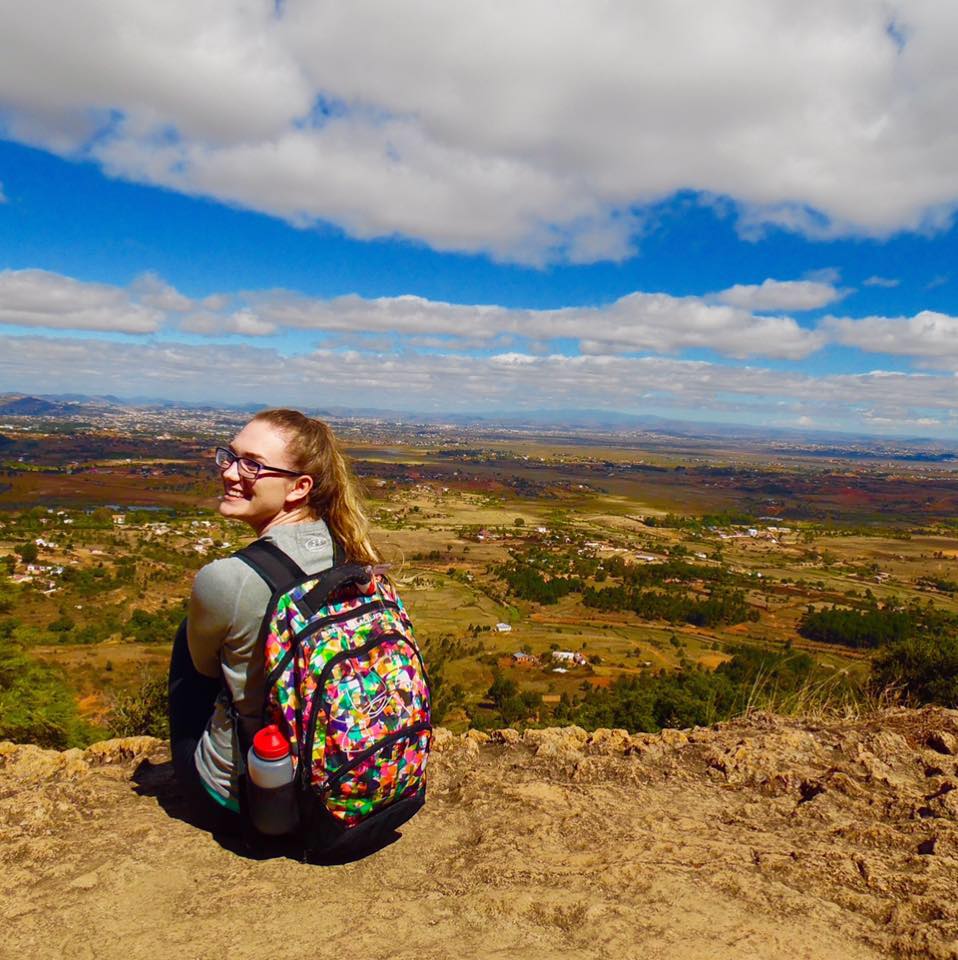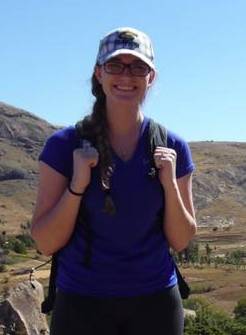|
You can excuse Taylor Braunagel if you think she talks too fast, or if you think conversations with her jump chaotically from topic to topic. That's because she's busy, even in the context of a generation in which individuals pride themselves on squeezing 26 hours of activity into 24-hour days.
"I've always been that person that doesn't feel productive if I'm not doing 8,000 things a day," Braunagel said.
That number may not be far off. Braunagel has managed to successfully balance her academics – she's majoring in biology and is a member of the Honors Program – with the grueling schedule of a college athlete, while still finding time to remain an active and involved member of the Fellowship of Christian Athletes and in Bible study groups. The common factor of being able to juggle all these responsibilities, according to her, is embracing the challenge.
"Biology is not an easy field to study, especially with the schedule of a college athlete," Braunagel said. "To be able to do these things, it takes a lot of determination and hard work. Whether I'm preparing for my academic pursuits or for athletic competition, I spend a lot of time preparing. It's very process driven."
Biology was Braunagel's passion as far back as high school, though if you'd asked her four years ago, you would have found a different point of emphasis. Braunagel originally intended to study pre-med before coming to Clarion, until an encounter the summer before her freshman year changed her mind.
"I always thought I was going to be an orthopedist because I spent so much time in doctor's offices dealing with sports injuries," Braunagel said. "It wasn't until I came to Clarion that I decided to go in a different direction."
Braunagel attended the honors camp at Clarion the summer before her freshman year of 2014-15, where she participated in a water quality test in local tributaries. The students sampled macroinvertebrates – "you know, tiny water bugs," Braunagel clarified – and checked pH levels, turbidity and alkalinity, among other things. From that moment on, Braunagel was hooked.
|
"I totally fell in love with the outdoors," Braunagel said. "I always loved it, but Clarion showed me that I could make a career out of it. I was so excited to have the opportunity to study nature."
Things progressed quickly as Braunagel moved forward in the world of biology. Before the summer of 2016, she was presented with a unique opportunity to feed that passion when Dr. Suzanne Boyden made mention of a study abroad opportunity in Madagascar.
"Dr. Boyden is one of my favorite professors. I've had her for several classes and I've worked for her," Braunagel said. "She approached me with this opportunity to do field research and earn college credit in this study abroad program, and I was really interested."
Braunagel said that among the many selling points of the trip was its unique location. Madagascar is a subtropical island that has a wide array of ecosystems, not to mention the fact that its isolation from the African mainland over the last 80 million years has led to the evolution of flora and fauna that you really, truly can't find anywhere else.
"There's a 96 percent endemicity of organisms on Madagascar, plants and creatures that literally are nowhere else in the world," Braunagel said. "For example, they don't really have venomous snakes or big predators there because it's so isolated. The populations have never needed them."
"Going to this place with such a unique environment, I feel like it's going to give me a leg up over other people in my field, because it's field experience very few others get in college," Braunagel said.
The group, which was made up of students from several universities, spent the first two weeks traveling across the island and touring the different ecosystems. They stayed at a research station called Centre ValBio in Ranomafana National Park, where they also attended classes during their six-week stay.
The field research done by Braunagel and her classmates, though, was done in the middle of the winter. Temperatures routinely dipped below freezing, the rain fell steadily and the sun rarely shined as the crew went through their experiments. Things like mist netting, botany plots, research on the strawberry guava and behavioral sampling of lemurs filled the days and nights of the students.
There was also small mammal trapping at night, with the group trying to capture rattus in traps – or, as it's more commonly known, the black rat. An invasive (non-native) species to Madagascar, black rats spread disease to the local community.
"We would go out into the forests at night with headlamps and Sherman traps, which we had to clean and bait every day," Braunagel said. "It was an hour to hike the transect and another two hours to set the traps, and then we had to collect the traps in four hours. We would just sit around the campfire, not being able to see anything around us, eating rice and beans until it was time to collect the traps."
Braunagel said that the education gained in nature and in the labs was valuable, but the lessons that made even more of an impact were the ones she took from the living situation of the Malagasy people.
|
"Nothing anyone tells you about the poverty there can really prepare you for seeing it for yourself," Braunagel said. "It's heartbreaking watching them make difficult decisions that, in our country, most of us never have to consider."
According to Braunagel, the average Malagasy citizen lives on the equivalent of less than one U.S. dollar a day. Their connection with the environment is obvious, as their chief exports are harvested items like cotton, vanilla and coffee. The challenge, Braunagel says, is balancing these economic concerns with environmentalist efforts.
"The country faces political instability, and the government doesn't really regulate many of these practices," Braunagel said. "One of the things being worked on is educating people about agriculture. They're working on ways to make it more sustainable and better for the environment without depleting resources.
"But these decisions are difficult for them," Braunagel continued. "Madagascar is considered the fourth-largest biodiversity hotspot in the world, but when push comes to shove, how much do you value that over feeding your own family?
She hopes to find out more the next time around. Braunagel said she has already decided that she wants to travel back to Madagascar to continue her studies.
"I think studying abroad is so important for a lot of reasons, because it puts you in unfamiliar circumstances and forces you to adapt," Braunagel said. "It reminds me of when I came to Clarion and started practicing with the volleyball team as a freshman, and you're dealing with all these new concepts and people. How you adjust determines how successful you can be."


